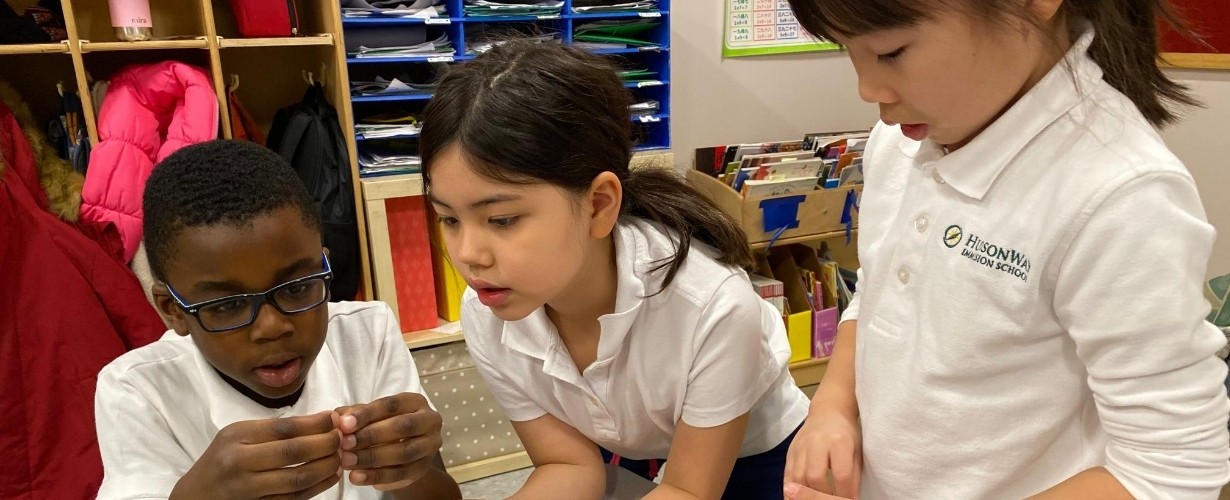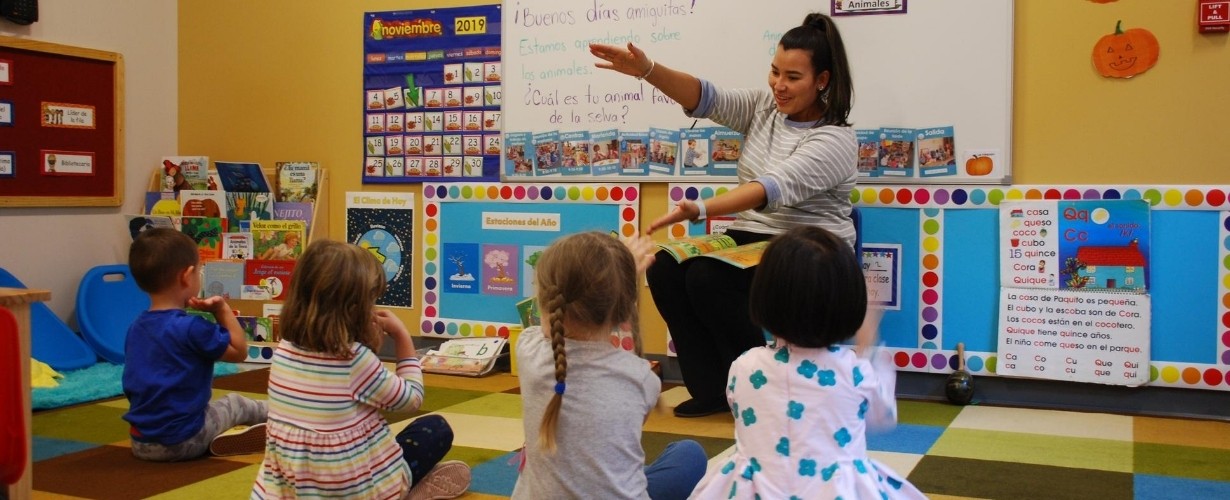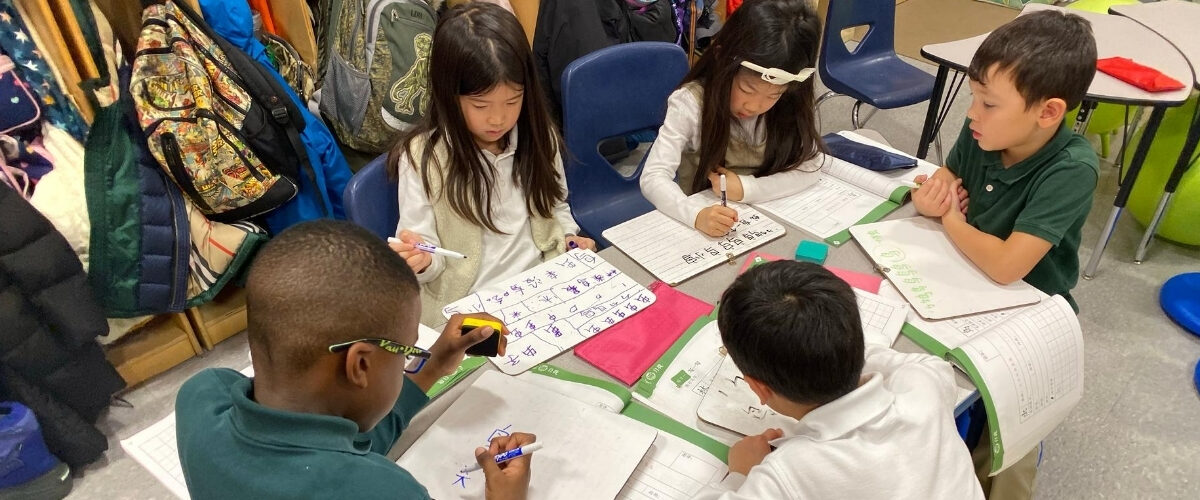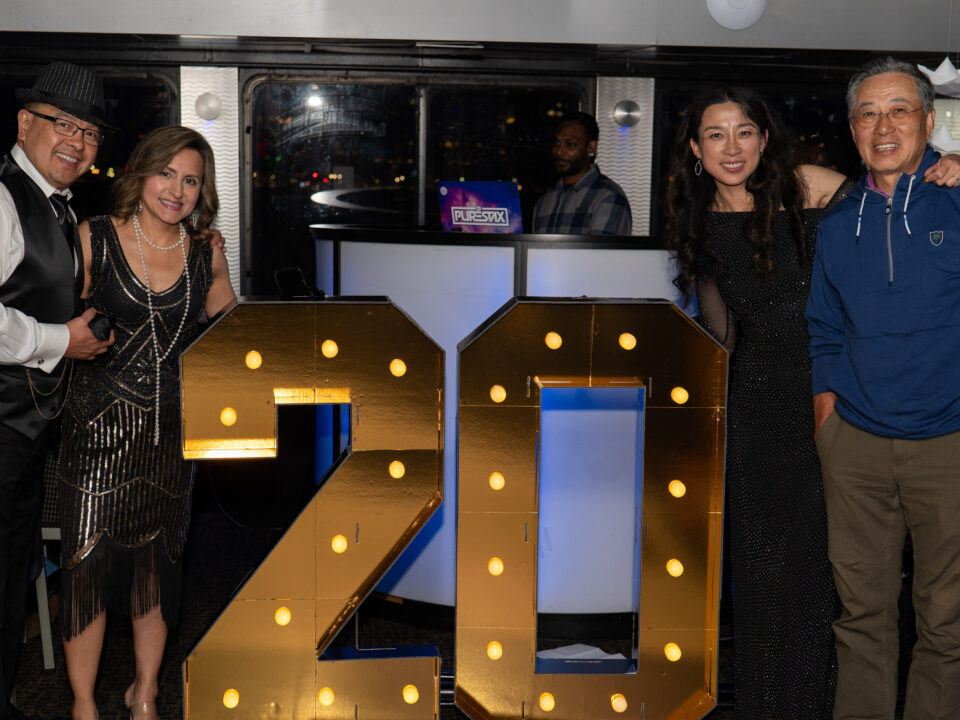
Why Immersion Education is the Best Way to Prepare Your Child for the 21st Century
August 22, 2020
How Immersion Programs Provide Challenge for Gifted Youth
August 23, 2020
The benefits of an immersion experience extend beyond being able to speak a foreign language. An immersion education can start a student on a path that changes the way he/she thinks, while developing skills that differentiate him/her in an increasingly competitive, ever-changing world.
Here are five ways an immersion education can change the way one thinks and interacts with others:
1. Confidence to interact with others – having the ability to interact with someone in another language gives one the confidence to initiate discussion, connect with others, and have richer interactions. This confidence enables one to initiate and take risks which can bring people closer together and result in more opportunities.
2. Higher IQ and creative thinking skills – Assessments conducted at HudsonWay Immersion School (HWIS) using coGAT testing showed that students’ cognitive skills improved the more years they spent studying at HWIS. After one year at HWIS 77% of students were tested as above average or gifted, but after 4+ years at HWIS, 97% of students were assessed as above average or gifted. Changes to the brain’s neural pathways are described in articles such as The Brain Benefits of Learning a Second Language.
3. Development of Executive Function – Dr. Ellen Bialystok, a professor at York University in Toronto, Canada demonstrated that bilingual children outperform monolinguals when it comes to disregarding extraneous information that is not relevant to a task. This ability, called Executive Function, is continually developed when a child chooses which language to use in a given situation. Executive function correlates with a child’s social competence, moral conduct and school readiness.
4. Grit and self-reliance – Having to work harder to understand what is being taught in a second language develops grit. Persistence in developing literacy skills in Mandarin, for example develops grit. Because most parents cannot help their children with homework in the target language, students have to be self-reliant. In this way, the immersion experience develops character traits important in today’s world.
5. Social skills and empathy – Graduates of HWIS tell us that they transition to ongoing schools easily. Their innate ability to take risks verbally coupled with their ability to see things from multiple perspectives has developed their high emotional intelligence. This is also discussed in the NYT article, entitled The Superior Social Skills of Bilinguals.
What Happens After Immersion?
Starting a child in an immersion program increases the likelihood of taking the next step towards becoming a global citizen whether it’s an internship or scholarship to study abroad, or continuing language study in college. There are scholarships such as NSLI for Youth, a merit-based scholarship provided by the US State Department available for students as young as high school interested in studying abroad. Other organizations that coordinate summer abroad experiences include CIEE.org. For Chinese in particular, Strong lists several links to scholarships, some providing yearly stipends of up to $37,500 per year to study in China. Whatever the program, studying or volunteering abroad is a great way to develop language ability, learn about the culture and contribute in a meaningful way.
Continuing Immersion in College – The Flagship Programs
There are 12 flagship programs in the US whose goal is to develop global professionals with superior Mandarin language proficiency and Chinese cultural understanding. Outstanding undergraduate students take college-level academic coursework in Mandarin. Hunter College in NYC is one of these flagship programs. The enrollment at Hunter’s flagship program during the 2013-2018 years grew year over year, with nearly 60% of graduates accepting jobs related to international work or working abroad.
Planning a career after college may seem too far in the future to be concerned about now, however, making a smart educational choice now can impact on skills developed all along the way and options that may present themselves that cannot be imagined today.





